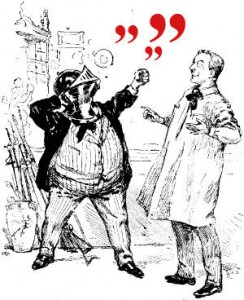Recently I finished teaching a six week workshop where one participant asked a tough question that has haunted me. “What shouldn’t I do as a writer? What mistakes can you help me avoid making?” I stumbled through an answer. I like to focus on the positive things writers can do to improve their writing and yet the question was a legitimate one. And in my line of work I’ve seen a lot of mistakes. So I thought I would share a short list of do’s and don’ts. Know your genre Many writers suffer from genre confusion. Fictional memoir doesn’t exist. Knowing your genre is important because bookstores need to know where to shelve your book. As a writer, it’s even more important because each genre has its own literary conventions. Within the genres of romance, mystery, thriller, suspense, and science fiction there are well-defined subgenres. Know precisely where your book fits because readers bring certain expectations to each. There are lots of love stories, but not all of them belong to the genre of Romance. Know your reader There is no “general reader.” Have you ever gone into a bookstore and library asked for a book that could be for anyone? No, me neither. Write with a specific audience in mind. Read I often hear writers say they don’t want to be influenced by what they read. Do artists avoid museums and galleries? Do musicians surround themselves with silence? Do you know any chefs who ignore their passion for food?…
You’ve polished your manuscript. Encouraged by friends and family who read earlier versions, you incorporated their feedback and suggestions into your final draft. Following a style guide, you also checked spelling and grammar. You’ve taken your work to the best of your abilities and are proud of your efforts. Then, you deliver the document to an editor for professional review. And that’s when self-doubt kicks in…. [Read More]
The return on your investment of time and energy spent on building an audience platform depends largely on an author’s strategy. I’ve observed too many authors spinning their wheels with the challenges of the technology, losing sight of the objectives, and missing opportunities to learn more how to market their own books. Here are some tactics that lead to epic failures in social media strategies… [Read More]
Coaching a writer to become an author involves more than writing. I’ve had the good fortune to work with writers for 30 years and I’ve discovered one secret to an author’s success that has nothing to do with their writing talents: professional behavior. I see too many good writers make mistakes without knowing they inflict self-injury to their publishing efforts. Here’s a list of things… [Read More]
Writing is not easy. As a developmental editor I have had the pleasure of working with fine artists, storytellers, public speakers, radio journalists, scientists, and college professors on book projects.For many, their authority as an author is based on skills and talents other than writing. Here are some tips I gathered from other professionals that may help others stand on their authority based on expertise… [Read More]
Before the advent of Facebook, Twitter, or LinkedIn, an author only needed to demonstrate to agents, editors, and publishers that his or her book had a potential audience. Today, an author has to show customers waiting to buy the book when it is released. Book marketing in the digital era of transmedia is about pulling readers in to the author’s platform rather than pushing books… [Read More]








